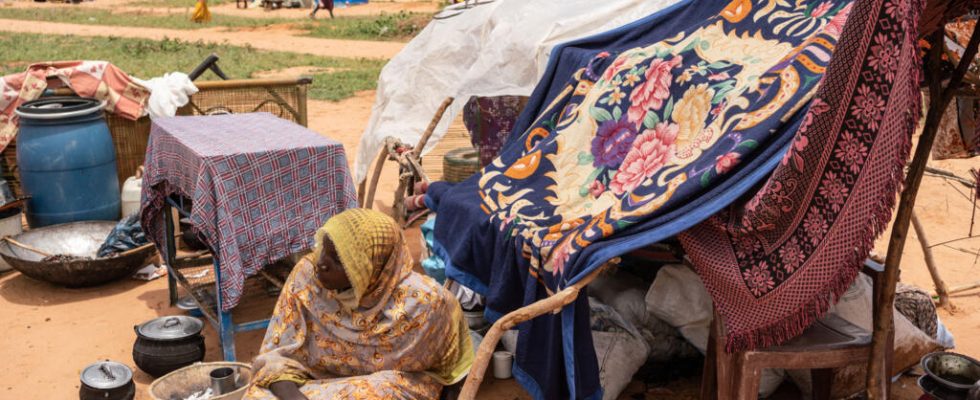Fighting is increasing in intensity in Sudan, particularly in the capital, Khartoum, where General Hemetti’s paramilitary forces attacked the headquarters of the regular army on Sunday. The conflict, which is entering its sixth month, has left thousands of civilians dead and displaced more than 5 million people. In Darfur, violence is daily. More than 420,000 people have already found refuge in neighboring Chad and hundreds continue to arrive every day.
4 mins
From our special correspondent to Adré, Eliott Brachet
Barely 5 kilometers from the border, new refugees stretch fabrics on pieces of wood to provide some shade. Samia Ismael fled Friday night. She comes from Murnei, a town in West Darfur under the control of the Rapid Support Forces and Arab militias affiliated with them. “ Our daily life was shootings, fires, rape and death, she says. We had nothing to eat. The militiamen graze their livestock on our farms. Every Friday they make us pay a tax in exchange for so-called “protection”. They regularly kidnap our girls and take them with them. A few days ago, Rapid Support Forces and militias attacked us. They killed the men and the boys. My husband died, his sister too, I now have to take care of his orphaned daughter. »
“ We are caught in the crossfire »
Refugees are coming further and further away. Mukhtar Zakaria fled the town of Nyala, capital of South Darfur, where dozens of civilians were killed last week following air raids by the regular army. “ Paramilitaries infiltrate residential neighborhoods. Then government forces attack them from their bases or from the air, he explains. Bombings kill innocent people. This war is taking a worrying turn. It’s getting worse. And in the end, it is we poor citizens who pay the price. We are caught between two fires, surrounded. »
Read alsoSudan: violent fighting in Khartoum, army headquarters attacked
To travel the 400 kilometers that separated him from Chad, Mukhtar had to spend several thousand euros. The price to pay to bring his disabled father to safety. Most Darfur residents remain trapped while the roads are dangerous and littered with checkpoints.
“ I fled the war in my country and found the war in Sudan »
While most of these refugees come from Darfur, some come from further afield. Like Tedros Tseguai, an Ethiopian who fled the war in this northern province of Ethiopia in 2020. Refugee in Sudan in 2020, he ended up finding work in the town of El Fasher in North Darfur, until war crossed his path again.
Leaning against the wall of Adré hospital, Tedros rolls up his sleeves. On the forearms and legs, large scars caused by shrapnel. He underwent four surgeries. In El Fasher, the war began during the month of Ramadan. “ We were confined at home with my wife and two children when a rocket fell inside. The shell fell on our heads, he remembers. My wife and one of my children died instantly. I was transferred to the hospital with the youngest who bled to death and died. »
When he left the hospital, his only escape was to take the road to Chad. “ Tigray is so far away, I can’t go back there. That’s more than 2,500 kilometers away. I contacted the Ethiopian embassy in Ndjamena, they told me: you are Tigrayan, we cannot send you back there, he reports. I have to stay here as a refugee. I fled the war in my country and found war in Sudan. I am assailed by thoughts. My father died in Ethiopia following a bombing. I no longer have children or a wife. I can’t sleep anymore. »
Sudan has long been a welcoming land for refugees from the region’s conflicts. In Khartoum and in the big cities, many Ethiopians, Syrians, Yemenis, Eritreans, South Sudanese and Central Africans had rebuilt their lives. From now on, they are returning to exile, fleeing a war that is not theirs.
Read alsoWar in Sudan: how the situation became disastrous and international aid insufficient
